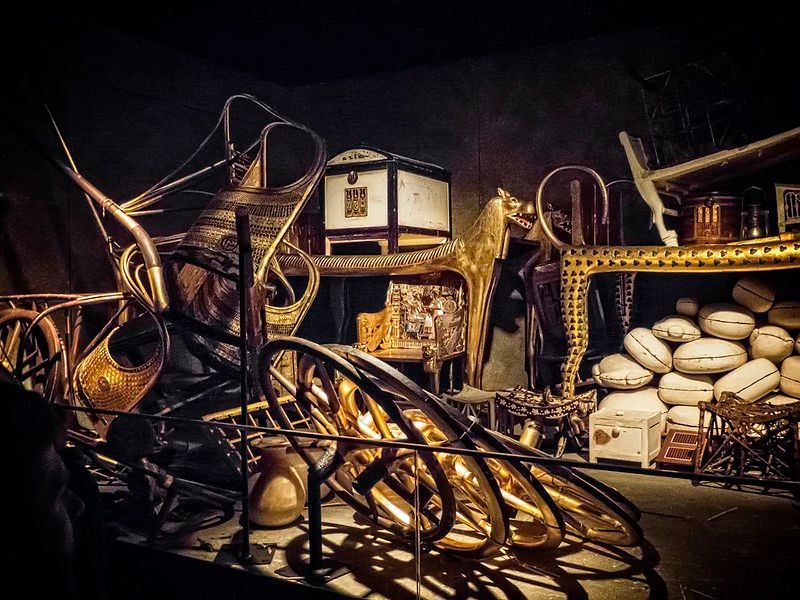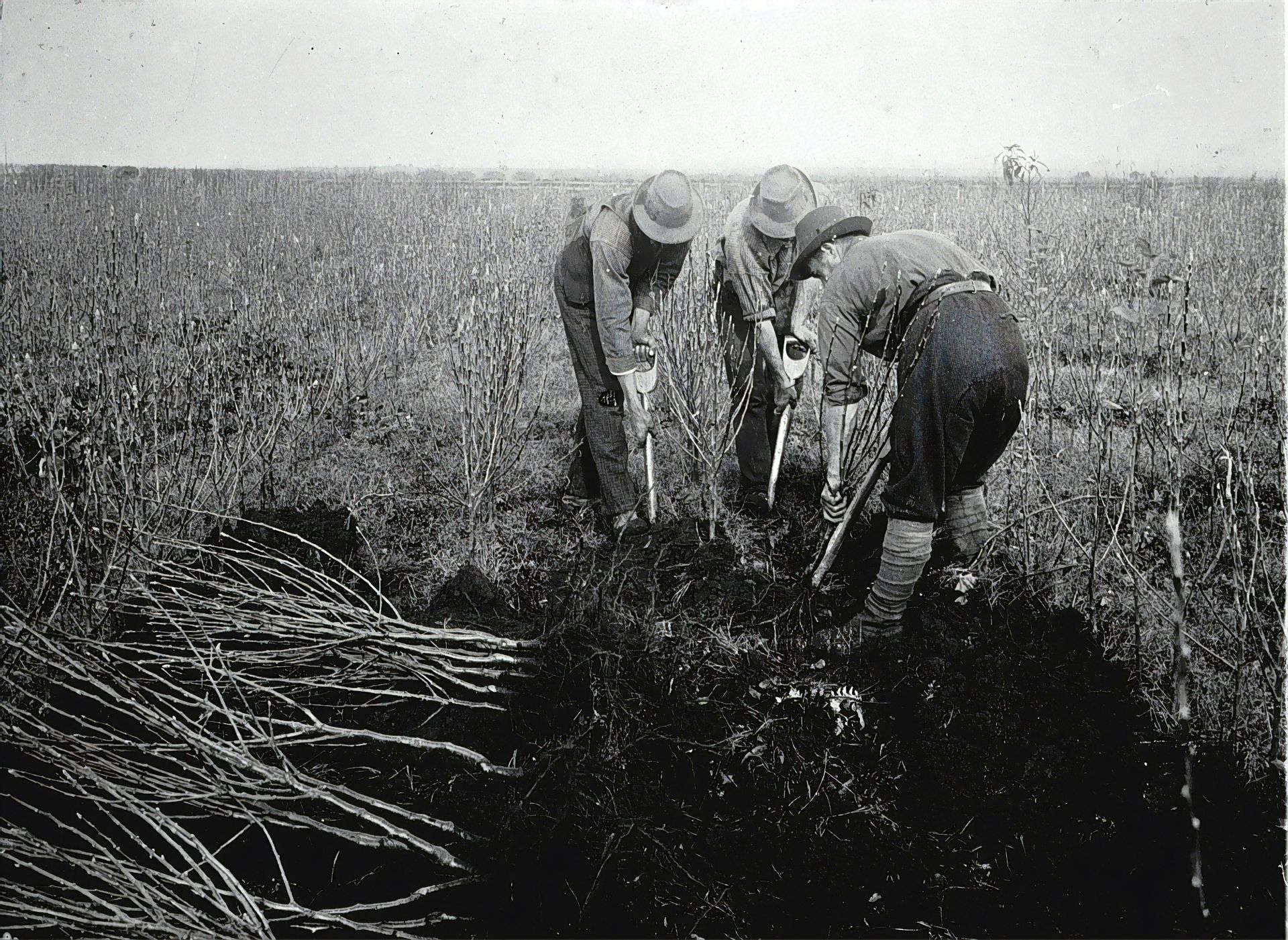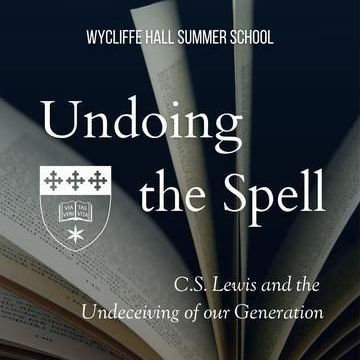Last Saturday was commissioning day, where we at Wycliffe gather together as a community to pray for our leaving students and worship all together for one last time. This year, our very own chaplain Revd Will Donaldson preached on 2 Corinthians 4:7 about the reality of ministry and the vocation of all those in ministry. After over a decade in ministry, I have to say it was really encouraging and re-envisioning for me and a reminder of why any of us do what we do. So I would like to thank Will for sharing the text with me so I can share it with you.
Commissioning Day Sermon (and first guest post)
Treasures in Jars of Clay
by Revd Will Donaldson
Good morning everyone and thank you so much, Michael, for asking me to preach on this wonderful occasion. It’s a real honour and privilege to do so! Some of you know that I was a tutor here for 6 years from 2007: it’s a joy to be back in my retirement on the chaplaincy team, alongside Jane and Bruce.
What will be your abiding memory of Wycliffe Hall?
- It might be lectures, whether at Wycliffe or in the Faculty, when your eyes were opened and your mind stretched to explore the heights and depths of academic theology
- It might be the Focus mornings or the Study Weeks, with their leaning towards practical preparation for ministry, underpinned by parish placements and missions
- It might be worship in chapel, when you experienced the presence of Christ in the singing, the preaching, the liturgy and the celebration of communion.
- It might be your fellowship group, where you got to know a group of fellow students really well and journeyed with them through the training process, and they were there for you when you needed support
- It might be the enjoyment of belonging to the wider community –
- the chats over coffee in the Common room, or the discussions over lunch,
- or the theological boxing matches in Fight Club (where no punches were pulled!),
- or the more refined formal occasions like Matriculation and formal halls,
- or our community notices on Tuesdays with the drum rolls and the gold awards and – not to forget - the Principal’s jokes (all under the pretext of needing to link things up!),
- or maybe your abiding memory will be the Hall Photo last month that ploughed on despite thunder, lightning and torrential rain! How hilarious was that! And you could spot the people whom Jesus would have called ‘oh ye of little faith’ – they had brought their umbrellas!
There’s one other memory that I hope you will take with you into your future ministries: it’s our text for this morning: 2 Cor. 4.7. - ‘But we have this treasure in jars of clay, to show that this all-surpassing power is from God and not from us’.
Let me explain why I would love you to embed this in your heart as we send you out…
1. We have been entrusted with Treasure
2. We carry this treasure in jars of clay
What artefacts from the ancient world Paul is thinking of here?
Some commentators suggest the small pottery lamps that could be bought in the shops at Corinth, cheap and fragile. (This would connect with the Christian ministers being carriers of light into the dark places in v.6). Others think the analogy is drawn from the Roman triumphal processions when the treasures and spoils of war were carried in unimpressive earthen containers. For e.g., following the Macedonian victory in 167BC, 3,000 Roman soldiers followed the chariots, carrying silver coins in 750 pottery vessels. (And we know that Paul is fond of using similes from the Roman processions from 2 Cor.2.14 and elsewhere). And others just highlight the fragility of ordinary pottery vessels in Near Eastern cultures that were used every day for domestic purposes: storing, carrying, cooking, eating, and drinking. They were only expected to last a few years, at the most.
Whatever Paul exactly had in mind, what is common to all of them if the idea of fragility, vulnerability and apparent weakness. This is the Christian minister: no big shakes; no big standing or reputation; always a weak and fallen human being who get ill, become stressed, experience exhaustion, has relational fall-outs and periods of low self-esteem and self-worth. A jar of clay.
Paul is deliberately contrasting himself (and his fellow ministers) with the trumped-up claims of the Corinthian super apostles, who were consumed by their own self-importance. We are the opposite of that, says Paul: jars of clay, fragile, unimportant and disposable.
In Genesis 1 we were formed from the dust of the ground, and to the ground we shall return one day (earth to earth, ashes to ashes, dust to dust). And Jeremiah 18 reminds us that God is the master potter and we are the clay – He is lovingly moulding and shaping us into his people, so that we become formed into his likeness. We carry priceless treasure, but always in jars of clay.
Over 40 years in ministry, God has constantly reminded me of this:
- sometimes it has been when feeling right out of my depth in challenging ministry situations;
- sometimes it has been through my mistakes and pig-headedness;
- sometimes it has been through anxieties and stresses over family matters;
- sometimes it has been strained relationships with colleagues and staff;
- sometimes it has been over disappointments and crushed dreams;
- sometimes it has been financial worries;
- sometimes it has been times of poor health or unexpected accidents (some of you know that I fell off a ladder last summer and completely smashed my hip, needing a full hip replacement…interestingly my new hip joint was a ceramic hip, formed from clay!).
But in each of these times, as we have fallen on our knees and said ‘God where are you? We’re really struggling! We need you so much – we can’t do this without you! And God has said to us: ‘Remember you carry this treasure in jars of clay. My grace is sufficient for you, for my power is made perfect in your weakness’ (2 Cor 12.9).
There was a striking testimony of this last Sunday morning on BBC 1 - it was ‘a Celebration of Pentecost’ from Gas Street in Birmingham, a packed multi-cultural congregation of people, mainly under thirty years of age. And during his talk, the minister, Tim Hughes, shared the story of how it all began, 10 years ago:
"I remember the first day we ever gathered in this building to pray – there were nine of us. Gathered in this derelict building, we needed to raise a huge amount of money – millions of pounds to renovate it. I remember looking at this group of nine, and then looking at the enormity of this building and thinking ‘we’re doomed!’ How’s this going to work? I was so aware of my limitations - Rachel and I had never led a church before. How could God do something beautiful and extraordinary? But in that moment of desperation, we began to pray: ‘Spirit of the living God, fall afresh on us’…and what we have seen is that, as we opened the door, people began to come. As we prayed, people began to give generously. They started to bring their friends and we began to see amazing stories of transformation…many hundreds now whose lives have been changed as they have met with Jesus Christ in this place…God has proved himself faithful, time and time again."
Let’s notice the striking paradox of all this:
Priceless treasure in clay pots!
Eternal glories in frail human beings!
The revelation of Christ to the world through fallen people like you and me
Why has God planned it this way? That now becomes clear in the last part of the verse…
3. Treasure in jars of clay, that God might receive the glory
It’s so that the world can see that ‘all-surpassing power is from God and not from us’. Ahh! Now we see the divine purpose in giving this ministry to weak, frail human beings like us.
Ministry is not about boosting our own little egos, about establishing our reputation, about making a name for ourselves, about building our own little empire, about being known as a great preacher or a dynamic leader or a renowned pastor or a powerful evangelist. Those ambitions are all out of place in Christian ministry for the simple reason that it means we get the glory instead of God.
No, the primary purpose of Christian ministry is the glory of God: that people see our good works and give glory to our Father in heaven. We went back recently to Canterbury where I had been at school, and we visited the magnificent medieval cathedral which is not only the focal point of the Worldwide Anglican Communion, but is also now a Unesco World heritage site, visited by hundreds of thousands of tourists and pilgrims every year. We also went after dark and it was beautifully illuminated by flood lights hidden all around the precincts.
Now, it occurred to me that nobody goes to Canterbury to look at the floodlights: sure, they have a very important role and they do a great job, but they are there to point away from themselves to illuminate the beauty of the Cathedral in all its glory.
And ours is a floodlight ministry: hidden away, hardly noticed, certainly not the focus of attention, but doing a vital role of illuminating the glories of our Saviour, and showing that the power and the glory belongs to him, not to us.
Charles Wesley expressed it so well in his wonderful hymn:
O for a thousand tongues to sing
my great Redeemer's praise,
the glories of my God and King,
the triumphs of his grace!
My gracious Master and my God,
assist me to proclaim,
to spread thro' all the earth abroad
the honours of your name.
We have this treasure in jars of clay, to show that this all-surpassing power is from God and not from us.
Amen
******
Cover photo by Iraj Beheshti on Unsplash
Egyptian treasures: photo by Mary Harrsch on Flickr





